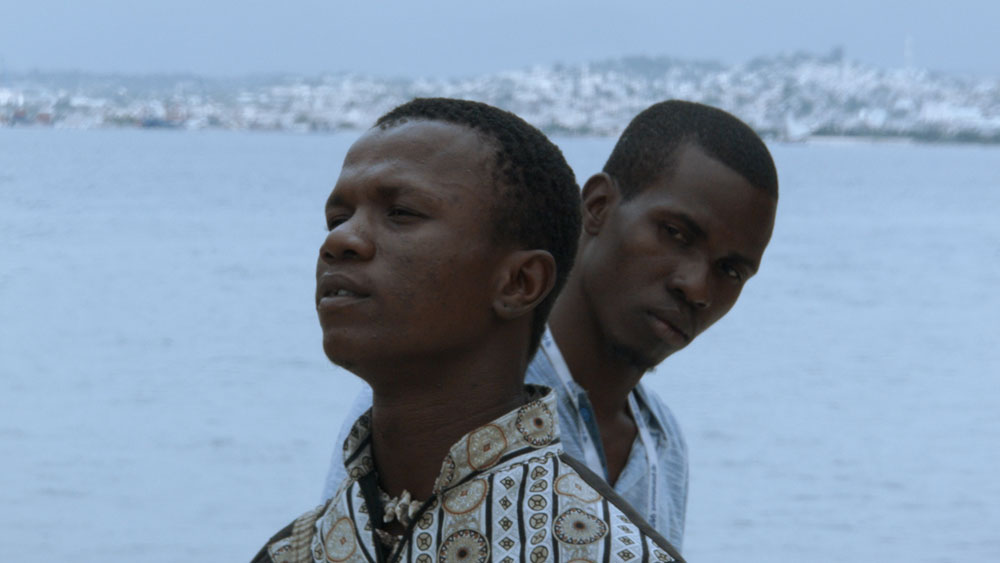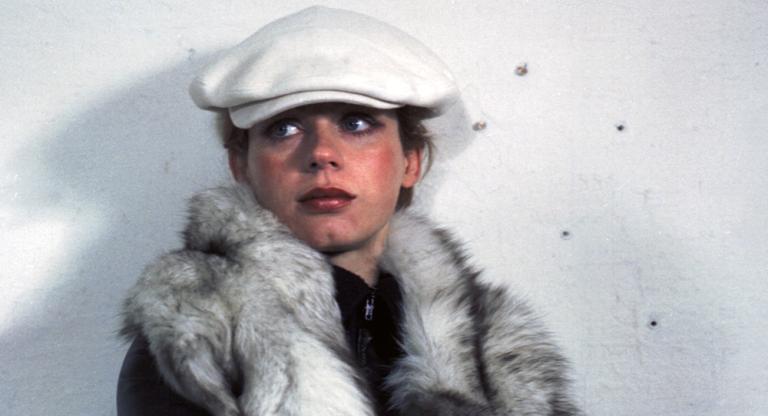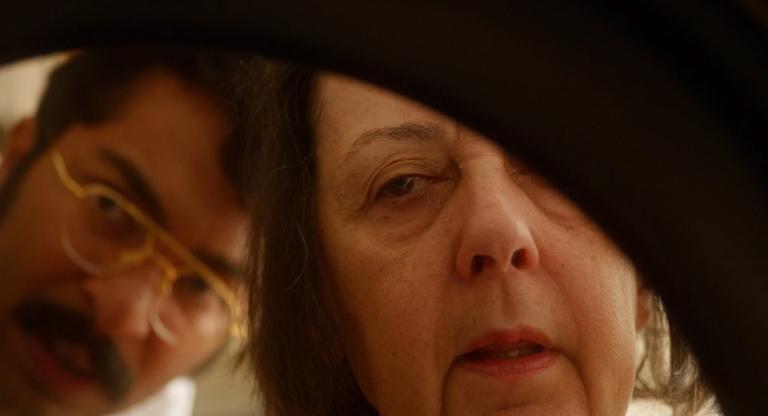Ouvertures (2019), a sweeping film made by the Haitian performance group The Living and The Dead Ensemble, begins in the Jura mountains of France. A young Haitian scholar reads from the personal papers of the Haitian revolutionary Toussaint Louverture whose final days took place in a jail cell in Fort de Joux. Expansive wides of the snow-covered landscape surrounding the prison accompany Louverture’s words, punctuating how remote he was from his homeland at the time of his death. The filmmakers proceed to show Louverture’s cell and the ancient Jurassic caves in the region—both cold hollows of beige stone. In these spaces, time collapses. Both the cell and the caves harbor centuries of growth and decay. Within them, the pain of the past haunts the present. “I die with this thought in my head,” the scholar reads aloud. “On my decomposing body, the people will sow their future.”
In the film’s second part, members of The Living and Dead Ensemble translate, rehearse, and perform Monsieur Toussaint, a 1959 play by Édouard Glissant about Louverture’s death in Jura. The group’s performers portray ghosts from Haitian history who converse with Louverture during his final days. Layers of the past and present converge as the actors simultaneously go about their lives in contemporary Port-au-Prince while rehearsing Glissant’s play. Their conversations about race, Haitian identity, and historical figures blend with those in the drama.
Ouvertures blooms into yet another incarnation in its third chapter. It turns out the group’s performance was also a ritual—the play’s speeches and songs acted as incantations, and the group’s shared energy summoned a mysterious force. After a performance, an actress named Cynthia tells another member of the group that two actors are sick. “They can’t stop dreaming of their characters,” she says. “But I know some remedies.” Later, in near darkness, Cynthia explains how successive generations of women pass down the sacred knowledge of preparing Vodou remedies. “When you need to prepare a remedy, there are ingredients you can’t look for, they will come and find you,” she says. “It’s in the future that the ingredients are hidden, and you won’t even know where they will come from.”
Ouvertures enacts an unwinding of history and it takes the spiral as its guiding symbol. Before the opening credits, a delicate spiral stretches across a deep blue ground. Later, the film’s characters ruminate on this serpentine form and its significance to Haitian culture. They relate it to the winding way in which Haitians communicate in Creole in order to safeguard secrets—“Creole, to be expressive, has to move through many things,” one of them remarks—and Spiralism, the artistic movement that developed in Haiti during the 1960s. At the end of the film, the entire group takes Cynthia’s remedy and decides to embark on a journey together. “Here is where the journey begins,” one of them says. Together, they walk off into an unknown future, one that is sure to carry echoes from their long, winding past.
Ouvertures screens tonight, February 14, and on February 20, at Anthology Film Archives as part of the series “Struggle of Memory: Forgetting Haiti, Remembering Ayiti.”



